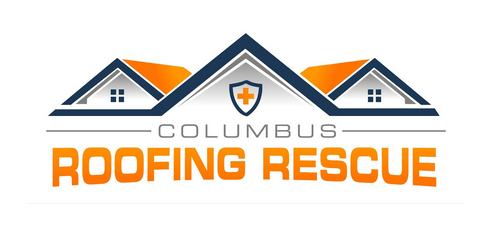
How To Market Your Roofing Company
In today’s highly competitive roofing industry, mastering the art of roofing promotion is more crucial than ever. With countless companies vying for the attention of potential clients, it’s essential to stand out and make a lasting impression. This comprehensive guide to the top strategies to market your roofing company will help you scale new heights and secure your place as a leader in the sector. Discover how to craft a compelling narrative, harness the power of digital marketing, and create an exceptional customer experience that will leave your competition in the dust.
Whether you are a seasoned pro or a new entrepreneur, these cutting-edge techniques will elevate your roofing business to new levels of success, setting the stage for unparalleled growth and prosperity. So strap in and get ready to unlock the secrets to roofing promotion mastery – your journey to becoming the ultimate roofing marketing expert starts here!
Importance of marketing in the roofing industry
Marketing is the lifeline of any business, and the roofing industry is no exception. With the ever-increasing competition in this sector, marketing has become a vital element in gaining a competitive edge and ensuring the continued growth of your business. This section will explore the importance of marketing in the roofing industry and how it can help you stay ahead of the curve.
One of the key reasons why marketing is essential for roofing companies is that it helps create awareness about your brand and services. With so many roofing contractors and businesses, it can be challenging for potential clients to differentiate one from the other. By implementing effective marketing strategies, you can make your business stand out and draw the attention of your target audience. This not only helps in attracting new customers but also in retaining existing ones.
Moreover, marketing is crucial in building trust and credibility with your clients. Roofing is a significant investment for homeowners, and they want to be sure they are choosing the right company for the job. By showcasing your expertise, experience, and commitment to customer satisfaction through targeted marketing efforts, you can instill confidence in your potential clients and persuade them to use your business over your competitors.
Building a strong roofing brand
Before diving into the various marketing strategies available to you, building a strong roofing brand is crucial. A well-defined brand helps you stand out in the marketplace, creates a sense of trust and professionalism, and ultimately, makes it easier for potential customers to choose your business. This section will discuss the key elements of building a strong roofing brand and how they contribute to your overall marketing success.
First and foremost, your roofing brand should be based on a clear and consistent message. This message should highlight your unique selling points and convey the value you bring to your customers. Whether it’s your commitment to using high-quality materials or exceptional customer service, ensure this message is communicated consistently across all your marketing channels.
Next, consider the visual elements of your brand. This includes your logo, color scheme, and overall design aesthetic. These elements should be carefully chosen to reflect your brand message and create a cohesive, professional look. Remember, your visual identity is often the first impression customers will have of your roofing business, so it’s essential to make it count.
Lastly, your brand should be supported by a strong online presence. This includes a well-designed website, active social media profiles, and a solid local SEO strategy. By investing in these digital assets, you’ll make it easier for new customers to find and learn more about your business, further reinforcing your brand image and credibility.
Developing a roofing marketing plan

Now that you have a strong brand in place, it’s time to develop a comprehensive roofing marketing plan. A well-thought-out business plan will serve as a guideline for your marketing efforts, ensuring that you stay focused on your goals and maximize your return on investment. This section will discuss the key components of a roofing marketing plan and how to create one for your business.
First, start by setting clear, measurable marketing objectives. These objectives should be aligned with your overall business goals. They should include specific targets, such as increasing website traffic, generating a certain number of leads, or boosting revenue by a specific percentage. By establishing clear objectives, you’ll be better equipped to evaluate the ROI of your marketing efforts and make adjustments as needed.
Next, you’ll want to conduct thorough market research to better understand your target audience, competitors, and overall market landscape. This research will provide valuable insights into what marketing strategies will likely resonate with your audience and help you differentiate yourself from the competition. Be sure to consider both online and offline channels, as well as the unique needs and preferences of your local market.
With your objectives and research in hand, it’s time to outline your marketing strategies. These should be a mix of traditional and digital tactics tailored to your specific audience and goals. Some examples of effective roofing marketing strategies include targeted online advertising, search engine optimization, local directory listings, and engaging social media content. Consider offline tactics, such as print advertising, direct mail, and networking events.
Digital marketing strategies for roofing companies
In today’s time, having a strong online presence is essential for any business, including roofing companies. Digital marketing offers a host of opportunities to reach your target audience, generate leads, and grow your business. In this section, we’ll discuss some of the most effective digital marketing strategies for roofing companies and how you can leverage them for success.
One of the most powerful digital marketing tools at your disposal is search engine optimization (SEO). Optimizing your website and page content for relevant keywords will improve your search engine rankings and increase the visibility of your business online. This, in turn, will help drive more qualified leads to your website and boost your overall marketing efforts. To get started with SEO, conduct thorough keyword research, optimize your website’s on-page elements, and invest in high-quality, relevant content.
Another crucial digital marketing strategy for roofing companies is pay-per-click (PPC) advertising. Platforms like Google Ads and Facebook Ads allow you to target specific keywords and demographics, ensuring your ads are shown to the most relevant audience. This can result in a higher click-through rate and more qualified leads for your business. To maximize the effectiveness of your PPC campaigns, be sure to create compelling ad copy, optimize your landing pages, and continually test and adjust your targeting parameters.
Email marketing is yet another powerful digital marketing tool that can help you stay connected with your existing customers and nurture leads. By creating targeted email campaigns, you can inform your audience about your latest projects, promotions, and industry news while providing valuable content that positions you as an expert in your field. To maximize your email marketing efforts, segment your contact list based on specific criteria, such as location, past projects, or interests, and tailor your content accordingly.
Local SEO for roofing businesses

Local SEO is critical to any roofing company’s digital marketing strategy. Optimizing your online presence for local searches can increase your visibility among potential customers in your area and drive more targeted leads to your business. In this section, we’ll discuss some key local SEO strategies for roofing businesses and how you can implement them for success.
First and foremost, claim and optimize your Google My Business (GMB) listing. This free tool allows you to manage your business’s presence on Google Search and Maps, making it easier for new customers to find and learn more about your company. Ensure that your GMB listing includes accurate and up-to-date information, such as your business name, address, phone number, website, and a brief description and relevant images.
Next, focus on garnering positive online reviews. Studies have shown that most consumers read online reviews before making a purchase decision, making it essential for your roofing business to have a strong online reputation. Encourage your happy customers to leave reviews on platforms like Google, Yelp, and Facebook, and be sure to respond to all positive and negative reviews promptly and professionally.
Finally, invest in high-quality, localized content for your website. This can include blog posts, case studies, and landing pages tailored to your local market and featuring relevant keywords. Creating valuable, localized content can improve your search engine rankings and provide potential customers with the information they need to decide about your roofing services.
Leveraging social media for roofing promotion
Social media platforms, such as Instagram, Facebook and LinkedIn, offer a wealth of opportunities for roofing companies to connect with their target audience, showcase their work, and generate leads. In this section, we’ll discuss some key strategies for leveraging social media for roofing promotion and how to implement them for success.
First, create a consistent and engaging social media presence across all relevant platforms. This includes regularly posting high-quality content, such as project updates, industry news, and customer testimonials, and engaging with them through comments and messages. Share visual content, such as before-and-after photos and videos, to showcase your work and attract potential customers.
Next, consider using social media advertising to reach a larger audience and generate more targeted leads. Platforms like Instagram and Facebook offer advanced targeting options, allowing you to reach potential customers based on location, interests, and demographics. Creating compelling ad campaigns and targeting the right audience can significantly boost your social media marketing efforts and drive more leads to your roofing business.
Lastly, use social media to network and build relationships with other industry professionals, such as contractors, architects, and suppliers. Connecting with other professionals in your industry can expand your network, gain valuable insights, and potentially uncover new business opportunities. Be sure to engage in relevant industry discussions and share your expertise to position yourself as a thought leader in the roofing community.
Referral marketing and customer reviews
Word-of-mouth marketing and customer reviews are powerful tools for promoting your roofing business and building trust with potential clients. In this section, we’ll explore the importance of referral marketing and customer reviews and strategies for generating more of both for your roofing company.
One of the most effective ways to generate referrals is to provide exceptional customer service. By going above and beyond for your clients and ensuring their satisfaction, you’ll create loyal customers more likely to recommend your roofing business to friends, family, and colleagues. Be sure to also proactively ask for referrals, as many satisfied customers are happy to help but may not think to do so without prompting.
In addition to referrals, online customer reviews significantly build trust and credibility for your roofing business. You should encourage your happy customers to leave reviews on social media like Google, Yelp, and Facebook, and make it simple for them to do so by providing links and clear instructions. Be sure to also respond to all positive and negative reviews in a timely and very professional manner. This shows you value your customers’ feedback and are committed to exceptional service.
Another effective strategy for generating referrals and reviews is offering your customers incentives. This can include discounts on future services, referral bonuses, or even free gifts. Adding value to your customers will create a positive association with your brand and encourage them to spread the word about your business.
Roofing trade shows and networking events

Roofing trade shows and networking events can be an excellent way to showcase your business, meet potential clients and industry professionals, and stay current on the latest industry trends and technologies. This section will discuss the benefits of attending trade shows and networking events and how to make the most of these opportunities.
First and foremost, trade shows and networking events offer a chance to connect with potential customers face-to-face. This can help build trust and credibility and provide an opportunity to showcase your products and services in a tangible way. Be sure to bring lots of business cards and promotional materials, and engage in meaningful conversations with attendees to make a lasting impression.
Trade shows and networking events also provide valuable insights into the latest industry trends and technologies. Attend seminars and workshops, and network with other professionals in your field to gain new perspectives and ideas. By staying up-to-date on the latest developments in the roofing industry, you can position yourself as a thought leader and stay ahead of the competition.
Lastly, consider exhibiting at a trade show or sponsoring a networking event. This can provide even more exposure for your business and help you stand out from the crowd. Be sure to create eye-catching displays and promotional materials and engage with attendees in a friendly and approachable manner. Investing in these opportunities will gain valuable exposure and potentially unlock new business opportunities.
Measuring your roofing marketing success
It’s very important to measure the success of your roofing marketing efforts. By tracking performance indicators (KPIs), such as website traffic, lead generation, and revenue growth, you can evaluate the effectiveness of your marketing and make data-driven decisions. This section will discuss some of the most important KPIs to track and how to measure them.
First, track your website’s traffic and engagement metrics, such as page views, bounce rate, and time on site. This will provide insights into how users interact with your website and whether your content resonates with your target audience. Additionally, track your website’s conversion rate or the percentage of visitors who take action, such as filling out a contact form or requesting a quote. This will help you evaluate the effectiveness of your website in generating leads and driving revenue.
Next, track your lead generation metrics, such as the number of leads generated and the conversion rate from lead to customer. This will provide insights into the effectiveness of your overall marketing efforts and the quality of your leads. Be sure to also track your customer acquisition cost (CAC), the total cost of acquiring a new customer, your customer lifetime value (CLV), or the total revenue generated by a customer over their lifetime. These metrics will help you evaluate your marketing strategies’ return on investment (ROI) and make informed decisions about where to allocate your resources.
Lastly, track your online reputation metrics, such as the number and sentiment of online reviews. This will provide insights into how your customers perceive your business and whether your marketing efforts resonate with them. Be sure to track your social media engagement metrics, such as likes, comments, and shares, and your email marketing metrics, such as open and click-through rates. These metrics will help you evaluate the effectiveness of your engagement strategies and make adjustments as needed.
Conclusion
Mastering the art of roofing promotion is essential for any roofing business looking to stay ahead of the competition and achieve long-term success. By building a strong roofing brand, developing a comprehensive marketing plan, and leveraging cutting-edge marketing strategies, you can attract more qualified leads, generate more revenue, and establish yourself as a leader in the industry. Be sure to measure the success of your marketing efforts and make data-driven decisions to continually improve and refine your strategies. With these tools and techniques, you’re on your way to becoming the ultimate roofing marketing expert.



